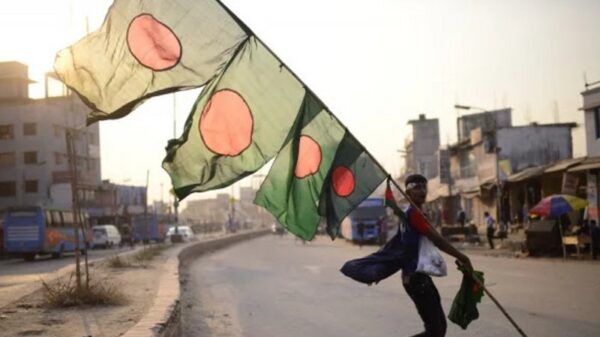Egypt, the romantic land of the pyramids and the Nile, a civilizational epicenter and wellspring of culture, was known as the ‘Land of Ra’ due to the important role of the ancient Egyptian sun god Ra. Much of course has changed since the falcon-headed deity’s dominance in the region. Egypt today is a Muslim state, the most populous Arab state, but the sun is once again rising on a new dawn in terms of the country’s international outlook.
Egypt, a sought-after prize throughout the great struggles of the Cold War is today at the heart of a great geopolitical divide. While Egypt has firmly been in the Western camp for the last forty years, since President Abdel Fattah el-Sisi seized control of Egypt in 2014, with Moscow supporting his overthrow of the Muslim Brotherhood-led regime, Cairo has significantly deepened its ties with Russia.
And the relationship is only getting stronger.
In 2018, the two countries signed an agreement on a comprehensive partnership and strategic military, security, trade, and economic cooperation, upgrading their relations to unprecedented levels. This is part of President Sisi’s strategy to leverage the rift between the United States and Russia, reminiscent of the deft maneuvers carried out by non-aligned countries during the Cold War.
Egypt, the world’s largest wheat importer, has long been dependent on Russian grain. Before Russia’s invasion of Ukraine, 80 percent of Egypt’s grain imports came from the two warring countries. The dependency on Russia has only intensified further since the invasion of Ukraine sent global food prices soaring.
This controversially gave rise to the alleged ‘Weapons for Wheat’ deal (similar to a previous deal Russia may have signed with North Korea), according to which Egypt would covertly provide Russia with rockets in exchange for food.
The Egyptian state of course has been giving subsidized bread to tens of millions of poor Egyptians for decades; today more than 70 million out of a total of 104 million Egyptians rely on these handouts. As a result, despite the secrecy, Egypt may have calculated that the risk of US sanctions is lower than the risk of the inevitable unrest that would follow were food shortages and high prices not addressed.
Egyptian-Russian military cooperation is also extensive; despite the massive aid packages the north African nation receives from the US every year. According to the Stockholm International Peace Research Institute, 60 percent of Egypt’s arms acquisitions from 2014 to 2017 were sourced from Russia.
In the infrastructure arena, Russia has invested in several Egyptian projects, including a $28.5 billion nuclear power plant financed mostly through a Russian loan. Another example is the Russian Industrial Zone in East Port Said and a plan to upgrade the Egyptian rail network. This is more than a simple economic relationship; it demonstrates Russian ambitions to play a key role in reshaping the region’s industrial and logistical landscapes, in some ways reminiscent – albeit on a smaller scale – of China’s Belt and Road Initiative.
This tangible campaign is buttressed by a broader war to win over the nation’s hearts and minds. Today, Russia is appears to be winning the information war in Egypt. Russian media outlets like RT Arabic and Sputnik are extremely popular, with RT Arabic becoming one of the most trafficked news websites in the country. The same is true for Egypt’s domestic media as many of the country’s leading agencies have signed binding contracts to amplify Russian broadcasting and programs across both nations.
Using these outlets, Russia promotes an array of disinformation regarding its invasion, as well as anti-American sentiment, in particular questioning the efficacy of sanctions against Russia.
Broadcasts and articles repeatedly claim that it is in fact the West which is responsible for the food crisis, and not the Russian invasion.
Finally, these outlets pump out content emphasizing the exaggerated benefits of Russian-Egyptian trade and investment, while downplaying the far more important Egyptian-American and Egyptian-EU relationships.
These disturbing developments are reminiscent of the historic Cold-War era Soviet-Egyptian relations, which were a great cause of regional instability. Egypt’s embrace of Russia of course comes with a serious degree of risk, given the fact that its largest trading partner is the United States, a country which also provides Egypt with $1.3 billion in aid annually.
Whilst the Egyptian government continues its balancing act, the West would be wise to further help Egypt tackle its food security crisis, releasing the reliance upon the great Russian bear hug.
Indeed, as the desert sun rises on this new international dawn, it is time for the West to wake up and address the ongoing disinformation and misinformation Russia is peddling in this contemporary epic struggle for the hearts and minds of the great land of the Nile.










































